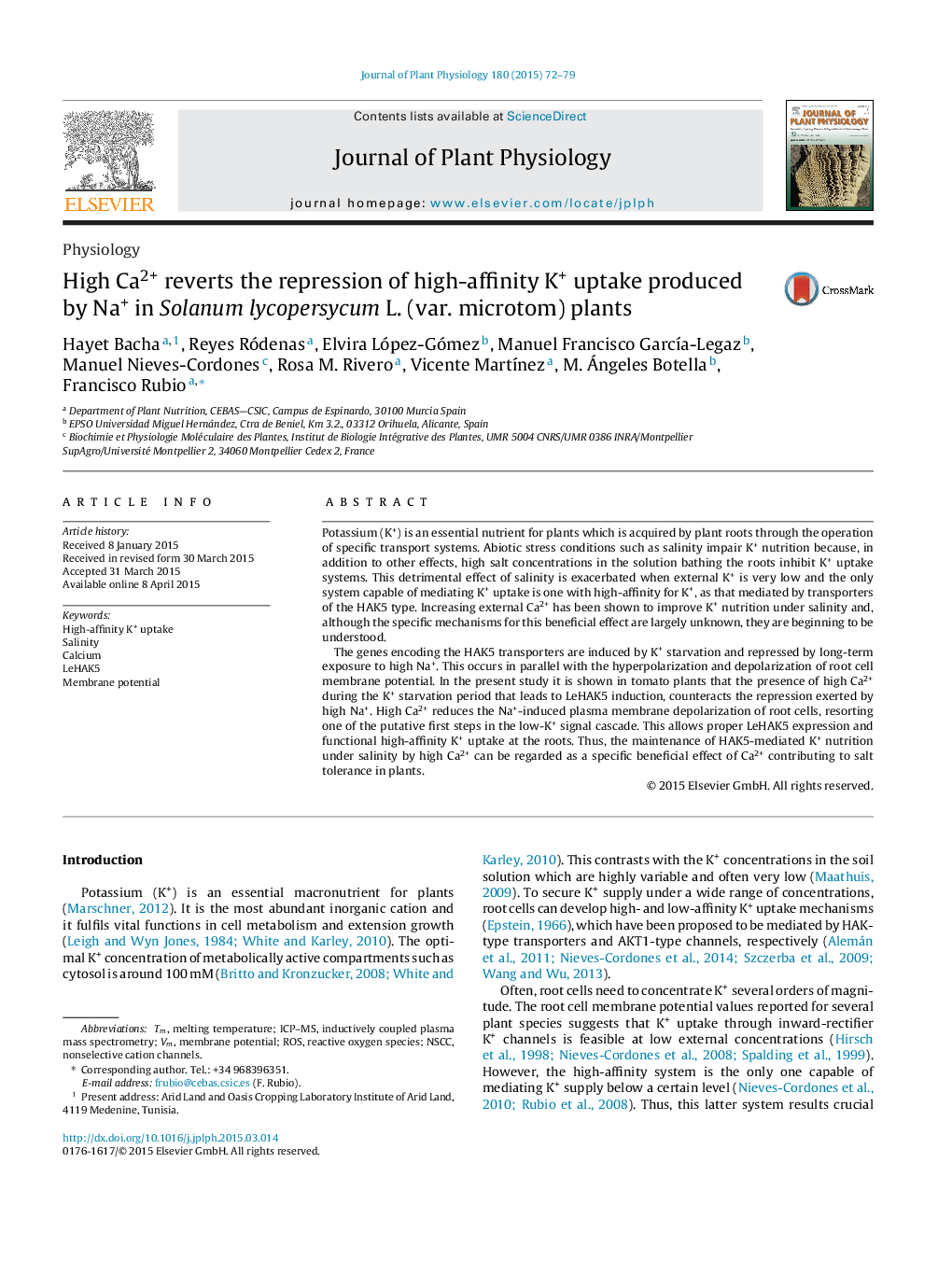| Article ID | Journal | Published Year | Pages | File Type |
|---|---|---|---|---|
| 2055549 | Journal of Plant Physiology | 2015 | 8 Pages |
Potassium (K+) is an essential nutrient for plants which is acquired by plant roots through the operation of specific transport systems. Abiotic stress conditions such as salinity impair K+ nutrition because, in addition to other effects, high salt concentrations in the solution bathing the roots inhibit K+ uptake systems. This detrimental effect of salinity is exacerbated when external K+ is very low and the only system capable of mediating K+ uptake is one with high-affinity for K+, as that mediated by transporters of the HAK5 type. Increasing external Ca2+ has been shown to improve K+ nutrition under salinity and, although the specific mechanisms for this beneficial effect are largely unknown, they are beginning to be understood.The genes encoding the HAK5 transporters are induced by K+ starvation and repressed by long-term exposure to high Na+. This occurs in parallel with the hyperpolarization and depolarization of root cell membrane potential. In the present study it is shown in tomato plants that the presence of high Ca2+ during the K+ starvation period that leads to LeHAK5 induction, counteracts the repression exerted by high Na+. High Ca2+ reduces the Na+-induced plasma membrane depolarization of root cells, resorting one of the putative first steps in the low-K+ signal cascade. This allows proper LeHAK5 expression and functional high-affinity K+ uptake at the roots. Thus, the maintenance of HAK5-mediated K+ nutrition under salinity by high Ca2+ can be regarded as a specific beneficial effect of Ca2+ contributing to salt tolerance in plants.
